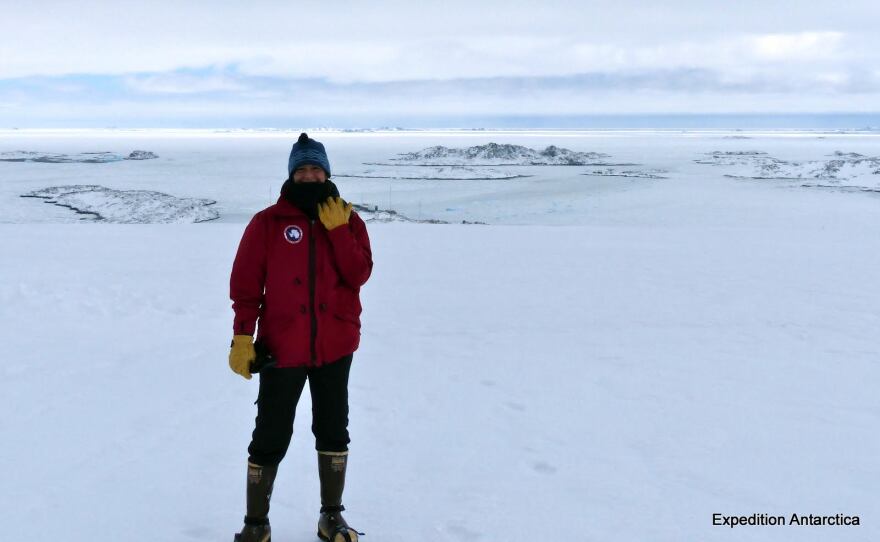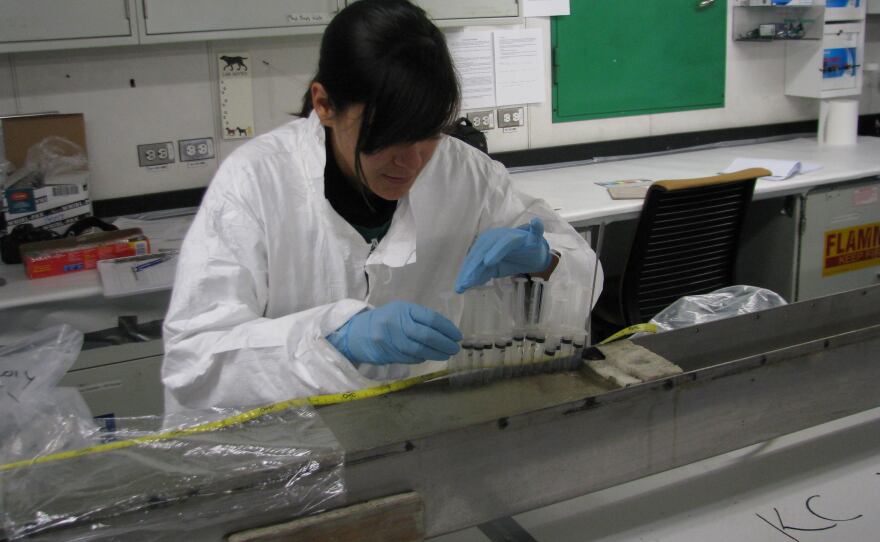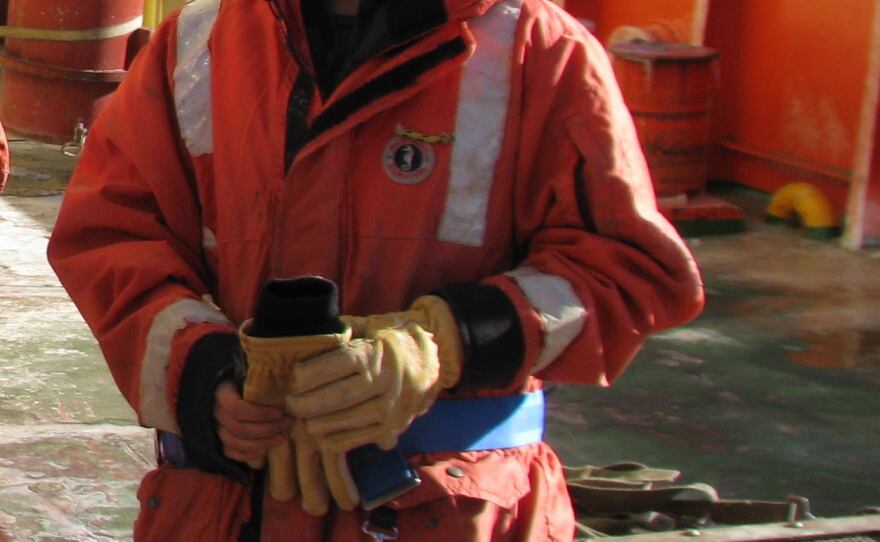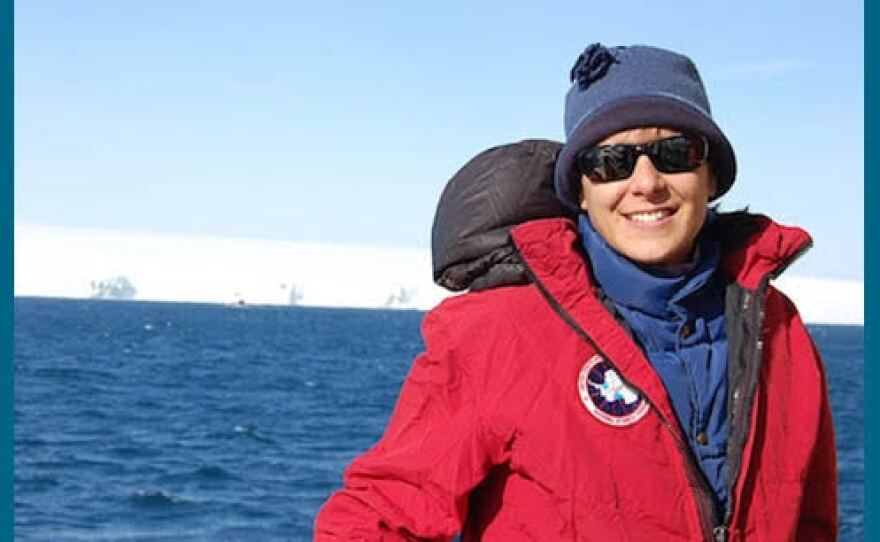With sea level rises, global warming and more, the Earth has been affected a lot by climate change in the last few decades.
For example, NASA reports that Antarctica lost about 119 billion tons of ice between 1993 and 2016 -- a rate that continues to grow exponentially.
Michelle Guitard, a PhD student at the University of South Florida College of Marine Science, is going to see these changes first-hand on a two-month expedition to Antarctica.
She’s focused her research on reconstructing the history of the Antarctic. And in March, as part of the International Ocean Discovery Program, she’ll be taking her work on the water to the Scotia Sea.
Guitard and a team of 20 other scientists from all over the world will study and investigate changes in ice sheet discharge over the last 14 million years by looking at sediment cores.
“The main goal is to better understand how the Antarctic ice sheet has evolved during time periods when we see either rapid change or a lot of change in a short period of time,” Guitard said. “But the goal of our cruise is to collect sediment cores to do a variety of analyses.”
On the expedition, the team will recover the cores by lowering a long drill pipe to the ocean floor and drilling through the sediment. A core barrel containing a PVC liner is lowered through this drill pipe, and sediment is collected section by section. Once the samples are brought on deck, they’re split in half and studied.
“I can only kind of guess what the cores will tell us,” Guitard said. “There may be a surprise, or there may be some discovery that we make that nobody can foresee, which is kind of the beauty of science.”
The information will be put into models, so Guitard said understanding what happened in Antarctica in the past will give them some sort of idea as to what might happen in the future.
Guitard is starting her seventh year of graduate education at USF.
“In that time I’ve been on two separate cruises, studied in other countries, written more pages of proposals than I care to think about,” she said. “So all of those experiences have prepared me for the type of work that I’ll do.”
In 2013, she went on a three-week expedition to the Antarctic Peninsula and in 2014 she sailed to the Sabrina Coast in east Antarctica.
Through her work, Guitard has also learned about the complexity of the continent.
“It’s this amazing, dynamic place,” she said. “You can’t just look at this sheet of ice and think that it’s just sitting there.”
Guitard said Antarctica has a dynamic topography, entire mountain ranges as well as underwater channels and rivers and is a host to different types of animals.
“You spend so much time learning about one subject and it seems like your whole world,” she said. “But you’re really just adding a small bit of new knowledge to the global understanding of the world and specifically Antarctica."
Guitard said these types of expeditions take a lot of time and effort to organize.
“Dr. Maureen Raymo, Dr. Michael Weber, Dr. Victoria Peck and countless others make this research possible,” she said. “It’s just an amazing, collaborative opportunity, and I feel lucky to be a part of it.”
More information about Guitard's March trip can be found on IODP's webpage and findings from recent expeditions can be found here.







